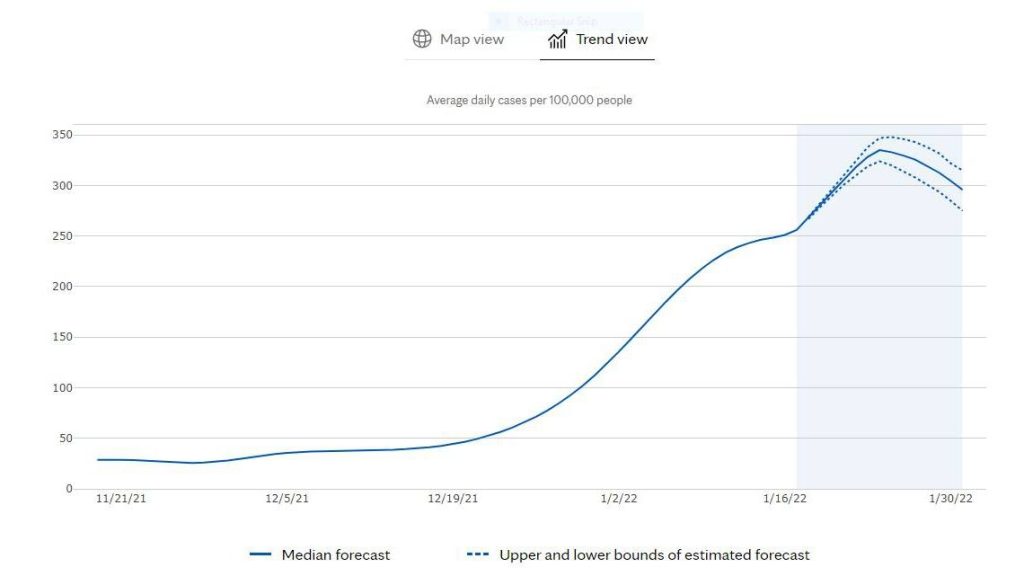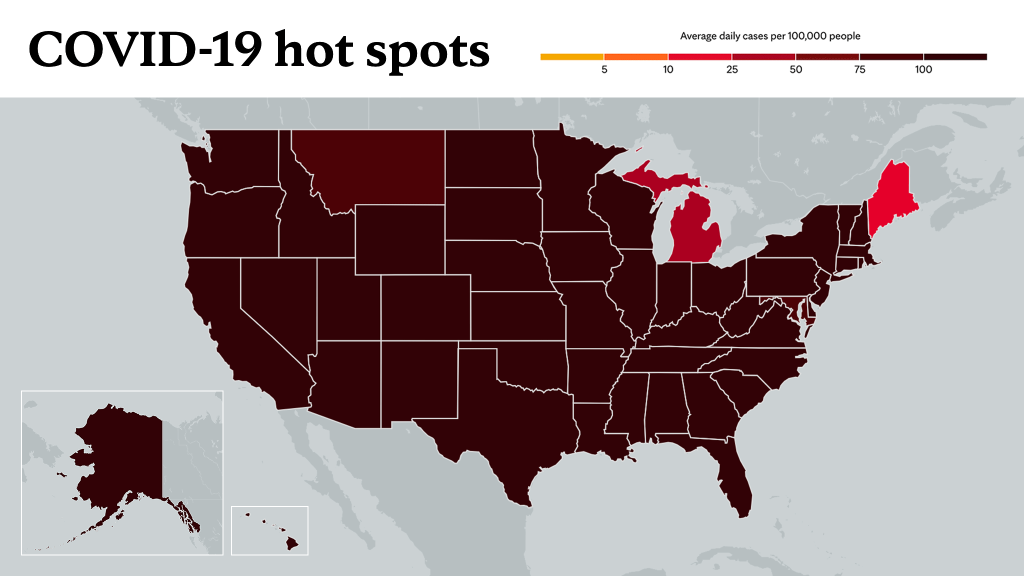-
Mayo Clinic modeling reveals expected peak, rapid drop in COVID-19 cases

The U.S. hasn't yet reached a national peak in the surge of the omicron variant. But experts say it is coming soon. COVID-19 cases are beginning to plateau in certain parts of the country.
Mayo Clinic's Predictive Analytics Task Force has been tracking COVID-19 cases in the U.S. since the start of the COVID-19 pandemic. Experts have been involved in building and maintaining predictive modeling for COVID-19 that allows clinic leaders to make informed decisions about hospital operations.
Dr. Curtis Storlie, a Mayo Clinic data scientist who is on the task force, says he anticipates a peak to occur before the end of January. Shortly after that, the modeling shows an abrupt decline in COVID-19 cases.
Watch: Dr. Curtis Storlie discusses expected peak, rapid drop in COVID-19 cases.
Journalists: Broadcast-quality sound bites are in the downloads at the end of this post. Please courtesy: Mayo Clinic News Network. Name super/CG: Curtis Storlie, Ph.D./Predictive Analytics Task Force/Mayo Clinic.
"It doesn't mean, OK, everything's behind us. People are still going to get infected on the way down — just as many on the way down as on the way up. And some of those (infections) are going to produce severe illness. It's not something to take lightly," says Dr. Storlie. "But we will likely not have subsequent peaks. We're likely going to be heading down for the foreseeable future."
"The future beyond that becomes a little bit more uncertain due to two factors. Primarily, what is the evolution of the virus? And what's that going to look like four months from now? We just can't really say. The other uncertainty is how willing is the population as a whole to embrace boosters and get on a regular schedule with that?"
He says the highly contagious omicron variant caused the number of COVID-19 cases to skyrocket over the past two months.
"Omicron is not something we want to take lightly just because it's causing less severe illness or even if you and your family are healthy and boosted," says Dr. Storlie. "It's not something to fear. However, what we do want to worry about is particularly spreading it to others. Others may be trying to avoid it because they're one of these folks that are immunosuppressed or have other significant underlying health conditions, and they're trying their best to avoid it. If too many of us get it all at once, it doesn't give them much of a chance to avoid it."
Despite the expected decline in COVID-19 cases, Dr. Storlie says everyone should take the necessary precautions, including masking, vaccinations and booster vaccinations, to prevent a surge from another variant in the future.
For the safety of its patients, staff and visitors, Mayo Clinic has strict masking policies in place. Anyone shown without a mask was either recorded prior to COVID-19 or recorded in a nonpatient care area where social distancing and other safety protocols were followed.
Information in this post was accurate at the time of its posting. Due to the fluid nature of the COVID-19 pandemic, scientific understanding, along with guidelines and recommendations, may have changed since the original publication date.
For more information and all your COVID-19 coverage, go to the Mayo Clinic News Network and mayoclinic.org.
Learn more about tracking COVID-19 and COVID-19 trends.








